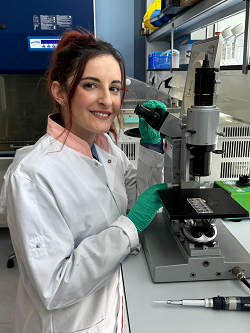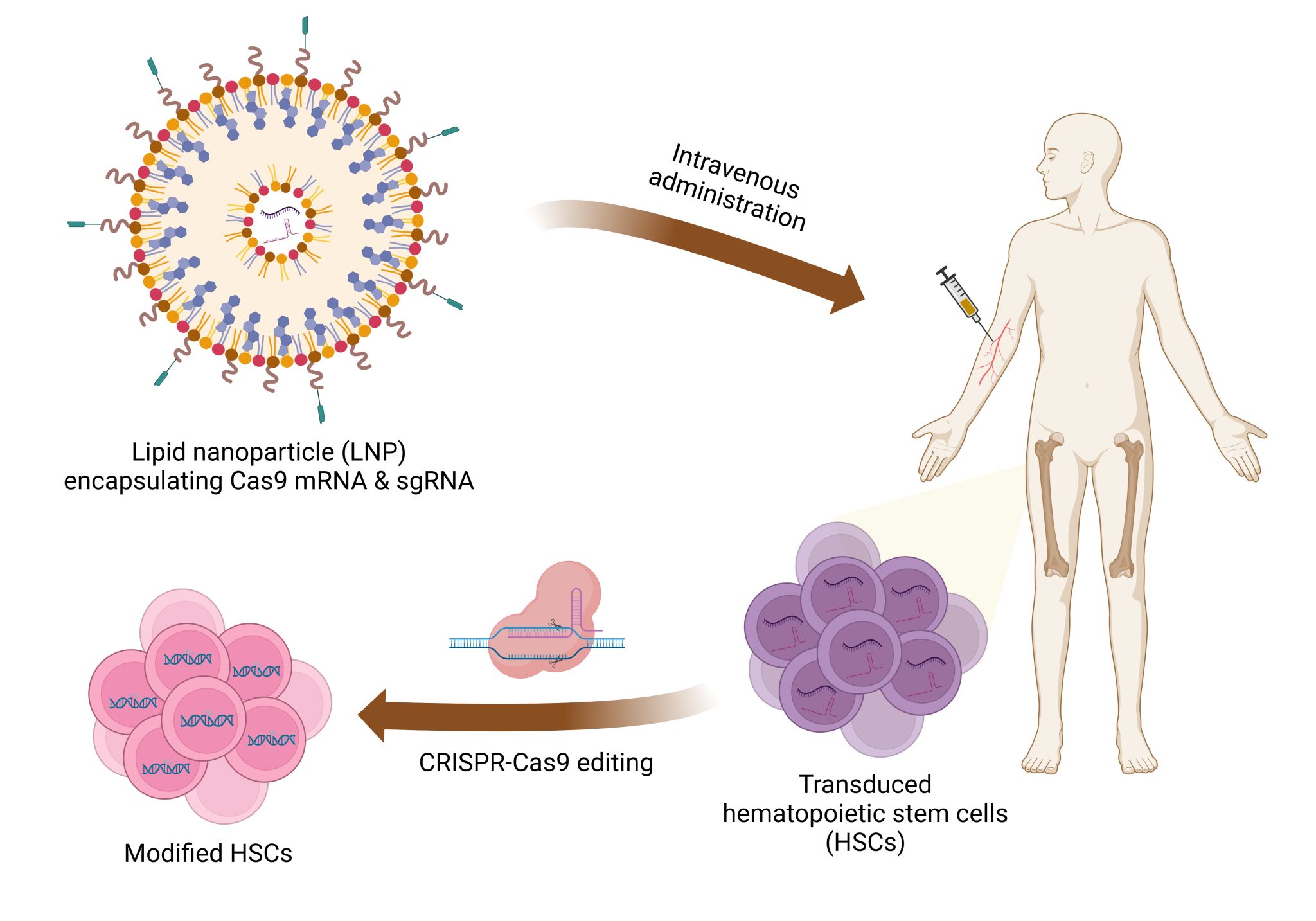Developing a platform for in vivo gene therapy of blood diseases
NewsDespoina Trasanidou is pioneering a platform for in vivo gene therapy of hereditary blood disorders, supported by the Sanquin Research Fund.
 Despoina Trasanidou is pioneering a platform for in vivo gene therapy of hereditary blood disorders, supported by the Sanquin Research Fund. Building upon Sanquin's established expertise in culturing and genetically modifying hematopoietic stem cells, Despoina is developing a novel method to repair these cells directly within the bone marrow. This elegant approach aims to eliminate the need for pre-transplant chemotherapy, thereby enhancing patient safety.
Despoina Trasanidou is pioneering a platform for in vivo gene therapy of hereditary blood disorders, supported by the Sanquin Research Fund. Building upon Sanquin's established expertise in culturing and genetically modifying hematopoietic stem cells, Despoina is developing a novel method to repair these cells directly within the bone marrow. This elegant approach aims to eliminate the need for pre-transplant chemotherapy, thereby enhancing patient safety.
Her initial focus is on rare hereditary bone marrow diseases for which hematopoietic stem cell transplantation from a healthy donor is currently the only treatment option.
Targeting genetic mutations with CRISPR-Cas9
Despoina will employ CRISPR-Cas9 technologies to precisely correct genetic defects within the stem cells. To achieve targeted delivery, she encapsulates the CRISPR-Cas9 RNA machinery within lipid nanoparticles that are specifically selected to recognize and bind to blood stem cells.
Upon binding, the lipid nanoparticles are internalized by the stem cells. The cells then utilize the RNA instructions to synthesize Cas9 fusion proteins (base/prime editors), which are specifically designed to repair the defective gene. The co-delivered guide RNA directs the Cas9 fusion protein to the precise genomic location requiring correction.

Following postdoctoral training at Florida State University (Tallahassee, USA) and at St. Jude Children’s Research Hospital (Memphis, USA), Despoina has recently joined Jan Voorberg’s lab and brings extensive experience with CRISPR-Cas9 technologies to Sanquin. This, combined with Sanquin's established proficiency in stem cell research, provides a robust foundation for development of a highly innovative gene therapy platform.
This multi-year project necessitates the development of highly selective stem cell-targeting moieties and the optimization of lipid nanoparticle composition. Furthermore, various CRISPR-Cas9 system configurations will be explored. Despoina will initially validate this in vivo gene therapy approach using isolated donor blood stem cells, followed by testing in pre-clinical models. The funding obtained from Sanquin Research Fund will allow her to establish cutting-edge treatments for patients with blood-related disorders.
